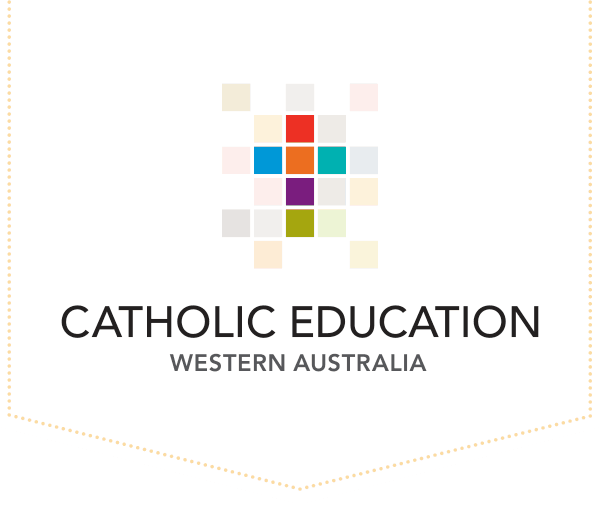Updated: 31 January 2022
CEWA is committed to keeping the community safe and to minimising the risk of exposure to COVID-19 in our schools and offices.
On this page
Further reading
Wellbeing overview
Wellbeing is more than just a good feeling... wellbeing is the state of feeling good in body, mind and spirit. Wellbeing is a realisation of the dignity of each person made in the image and likeness of God. In Catholic education we believe that every person belongs, that every person is sacred and that every person should be able to flourish and experience the fullness of life. The pastoral care that we offer as Christ-centred and student focused Catholic educational communities is an expression of the social responsibility that we have for one another as a human family.
Through our responses and actions at this time of the COVID-19 pandemic, we can offer a strong sense of hope informed by our Christian faith. As a Catholic community we also continue to pray for all those impacted.
With the frequency and extent of the COVID-19 coverage there are increased feelings of vulnerability and or anxiety regarding risk to students themselves, their families and friends getting ill with COVID-19, which is not a good feeling. Staff and parents may also share these feelings.
It is important to acknowledge the potential for anxious reactions and therefore, ensure that appropriate supports are provided to these students, teachers and the wider school community.
We are aware that vicarious exposure via the media is also very likely. Even if relatively few in WA are directly impacted, at the moment, virtually everybody will be following the coverage of the impact of COVID-19. It is important as such to also acknowledge this secondary exposure can also cause distress and fears for safety.
Speaking with students about COVID-19
It is important to ensure we provide factual information without fuelling further anxiety. Here are some points to keep in mind when responding to children and young people.
Help children and young people to think critically about the information they are hearing and seeing and reassure them
Build news and media literacy to separate fact from fiction.
Put things in perspective and provide reassurance – it is unlikely that they will get sick and if they do they will go to the Doctor. Most children have mild symptoms and are well again. Doctors are working on finding a solution. Research is happening right across the world for both a treatment and a vaccine.
Help your children to think about how they have coped with difficult situations in the past and reassure them that they will cope with this situation too. Remind them that the isolation won't last for long.
Remain calm
Remember that children and young people pick up both your verbal and non-verbal cues. They take on board how you are reacting to the situation. As adults, manage your own fears and anxiety to give children a sense of safety.
Make yourself available to listen and answer questions
It’s often most helpful when asked a question about the virus and what may happen to start with finding out what the child or young person already knows. Listen to their concerns and acknowledge the feelings they are expressing.
Be developmentally appropriate
Don’t volunteer too much information, as this may be overwhelming. Instead, try to answer the child or young person’s questions. Do your best to answer honestly and clearly. It’s okay if you can’t answer everything; being available is what matters.
Empower children and young people with what they can do
Hygiene strategies such as increasing hand washing, using sanitiser if soap and water aren’t available, catching their coughs in their elbows, etc.
Exercise regularly. Options could include exercise DVDs, dancing, floor exercises, yoga, walking around the backyard or using home exercise equipment, such as a stationary bicycle, if you have it. Exercise is a proven treatment for stress and depression.
Encourage your children to keep in touch with family members and friends via telephone, email or social media (where appropriate).
Pray with your children, encourage them to pray (see the section below).
Pray with your children
Use the school prayer or simple prayers such as the ‘Glory Be’, ‘Hail Mary’ or ‘Our Father’.
Pray for those who are unwell with COVID-19 and the health workers who are caring for them.
Encourage the use of simple Christian meditation for children or other prayers (see resources below).
Connect with your local parish or diocese online.
Avoid language that might blame others and lead to stigma
Remember that viruses can make anyone sick, regardless of a person’s race or ethnicity. Avoid making assumptions about who might have COVID-19.
If further assistance is needed, contact the Childsafe Team on (08) 6380 5134
Resources for parents (and teachers)
How to talk to your kids about coronavirus:
This a comic for children explaining the coronavirus:
A 4 minute animated clip for children on coronavirus:
https://www.brainpop.com/health/diseasesinjuriesandconditions/coronavirus/
Christian Meditation for Children and Young People:
http://www.cominghome.org.au/practice/dsp-default-d.cfm@loadref=132.html
Catholic Prayers:
http://www.pray.com.au/resources/
https://www.loyolapress.com/our-catholic-faith/prayer/childrens-prayers

